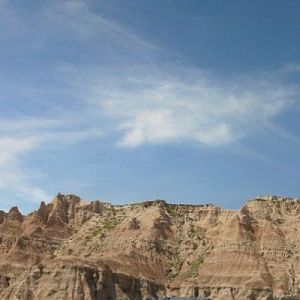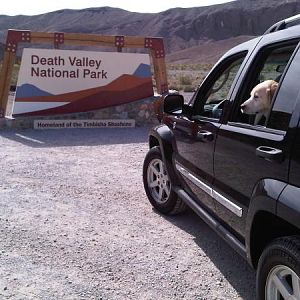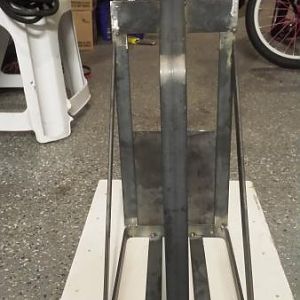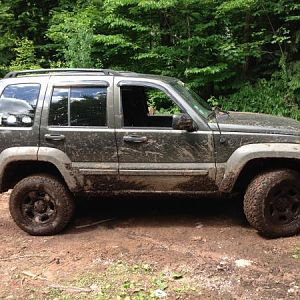Did that pennzoil engineer say anything about candle wax?
I hate to say this but out of the dino oils penz is the best because it is perfin based(wax),but is a total nightmare when time to rebuild,which will be sooner since the heavy build up of wax will block oil ports and oil starve the engine after awhile(about 100,000 or so miles).That's why it is called the mechanics worst nightmare.
I do know about parrafin wax in being in Pennsylvania oil and asphalt in Texas oil but that hasn`t been a factor with modern additive packages. That is how the crude comes out of the ground. It used to be if you bought a certain brand oil, (Wolf's Head, Pennzoil, Amalie, Quaker State, etc.) you knew were it came from. Think about what is better for an engine, parrafin or asphalt? Any modern engine with timely oil changes does not have that problem and you will go 300,000 miles if the car doesn't fall apart around it. I worked at an automotive machine shop in the 70's and that whitish sludge was a real problem in most cars around 80-100,000 miles. You couldn't change the oil fast enough in those days.
Excerpt from Wall Street Journal about my Dad's hometown, 7th paragraph mentions the wax content......
OIL CITY, Pa. -- In 1859, Edwin Drake drilled the world's first commercial oil well in this rural corner of northwestern Pennsylvania, helping kindle the petroleum age. But over time, most of the easy oil was extracted and the big companies moved on, leaving rusty oil wells and shut-down refineries in their wake.
Sky-high crude prices have now sparked what some locals see as the storied area's last hurrah. Hoping for a final gulp of black gold, old-timers and upstarts are going after what's left in the world's original oil patch with drill bits, nuclear scanning machines, dynamite, chemical explosives, high-pressure water -- and plain old grit. Soon they'll even try digging it up.
Piloting his truck up a newly carved road, Ronald Beck recalls questioning his own sanity in 2004, when he quit his timber-cutting job and poured his savings into installing an old drilling rig in the muddy oak forests here along the Allegheny River. "I was all twisted up inside," Mr. Beck says, swerving to avoid a fallen tree. "I couldn't sleep for weeks."
His well, up a wooded incline, was no gusher. It gave up around 50 barrels a day for a month or so and then dwindled to less than a single, 42-gallon barrel a day. That may be miniscule amounts by industry standards, but with Pennsylvania crude then fetching around $34 a barrel, Mr. Beck managed to cover his $35,000 in expenses in less than a month.
Budding Titan
Today, the same high-quality crude earns over $90 a barrel, turning 33-year-old Mr. Beck into something of a budding oil titan. He has drilled 31 other new wells and hopes to double that number this year. Along with dozens of decades-old wells he took over from his late father, Mr. Beck now has some 160 small rigs pecking up crude across 10,000 acres of leases.
Dressed in stained coveralls and a baseball cap, Mr. Beck won't talk exact profits or production figures. "I don't want hate mail," he says, citing the difficult economic conditions faced by many of his neighbors. Like most everyone else here, Mr. Beck has good reason to believe that the good times won't last.
Venango County's oily substrata has fueled and broken its share of dreams over the past 149 years. First the oil flowed by the boatload from boomtowns like Titusville and Pithole. Later the waxy stuff -- Pennsylvania crude's high wax content made it a popular engine lubricant -- trickled in dribs and drabs. Mr. Drake, the first oil prospector, died broke. Refineries opened and closed. Pennzoil-Quaker State Co., once based in Oil City, moved on. Oil City and Titusville, the two county pillars, are hollowed-out versions of their former selves.
"This area has seen its share of depression," says Randy Seitz, who runs a civic group called the Oil Region Alliance that's trying to spur new development.
Mr. Beck operates his IMOD Oil Production LLC out of an office in his mother's house. His father, a former steel worker, bought up scads of old mineral leases through the lean years of the 1990s from Quaker State and other oil companies. He died in 2003 -- "just before the business got good again," his son says. IMOD stands for In Memory of Dad.
A few miles south, William Huber has responded in a simpler way to galloping oil prices. His father and grandfather, both lone operators like him, "used to make the earth shake" with the nitroglycerine they stuffed into the family's aging wells, he says. After the government banned nitro use for security reasons, Mr. Huber turned to dynamite to free up pockets of crude.
"This guy was down to a teacup a day until I dropped in a few sticks" of dynamite, Mr. Huber says, patting a rusty rig that emits an eerie squeal through the forest as it bobs up and down. The well -- circa 1920 -- now belches up a few barrels a week.
To survive the 1990s, when oil prices were languishing below $20-a-barrel, Mr. Huber and his wife boarded dogs in a kennel behind their house. Dogs still yap in the backyard, but 67-year-old Mr. Huber now pumps around 25 barrels a week from wells scattered through the surrounding woods. The income, around $9,000 a month at today's prices, "has made the dogs a lot less necessary," he says.
Mr. Huber is also bringing some of his more decrepit wells back on line. He has ordered a few spare parts to revive one well, vintage 1865, down the road from his house. He's hoping the work will nab him a quick 50-barrel spurt before the well settles down to a few gallons a day.
Grand Ideas
Other folks have grander ideas. As is the case with most tapped out oil fields, geologists estimate that around 70% of the oil that was here when Drake arrived is still locked underground. The trick is how to get it.
One Canadian company, Rock Well Petroleum Inc., thinks it's got the solution. Having acquired the rights to 8,000 acres in the heart of Venango County, the company plans to dig several huge caverns, each more than 800-feet deep but large enough to drive a truck into. Miners will then bore and drill outward, letting the oil drain into the caverns. Pumps will bring the crude to the surface.
Rock Well already has an oil-mining venture at the old Greybull Field in central Wyoming. Dug last year, the operation is expected to drain off around 300 barrels of oil a day for the next 15 years. John Hoak, a Titusville native who runs Rock Well, told a gathering last month that the venture will suck millions of barrels from Venango County.
All of which has spurred talk that sky-high oil prices may finally finish off the world's original oil patch. "If Rock Well does what it says, they could pretty much drain everything left in the sands around here," says 79-year-old Augie Holtz, an old Quaker State well operator and one of the county's most veteran oil men.
McClintock No. 1
Still, he is hesitant to be too absolute in his prediction. Mr. Holtz serves as caretaker to the world's oldest operating well, the famed McClintock No. 1, on behalf of the Drake Well Museum.
Drilled in 1861 just north of Oil City, the well these days churns out mainly salt water. Dropping by one recent morning, Mr. Holtz catches a handful of the oily brine and takes a small slurp. "Tasty," he says.
But give the well enough time, he says proudly, "and it comes up with oil, too." About 38 barrels last year, to be exact.
Write to Neil King Jr. at
[email protected]1
 I just got around to reading all of the oil change interval section in my owner's manual. (Skimmed it before, my mistake.) I was surprised to see that they say not to leave oil in more than 6,000 miles or 6 months under any circumstances. I agree with he 6 month interval. My circumstances - Mobil 1, 3 1/2 months, 7,700 miles. It is coming out today regardless. I doubt if I really hurt anything, no offroading or towing (yet!) and a lot of highway miles.
I just got around to reading all of the oil change interval section in my owner's manual. (Skimmed it before, my mistake.) I was surprised to see that they say not to leave oil in more than 6,000 miles or 6 months under any circumstances. I agree with he 6 month interval. My circumstances - Mobil 1, 3 1/2 months, 7,700 miles. It is coming out today regardless. I doubt if I really hurt anything, no offroading or towing (yet!) and a lot of highway miles. 

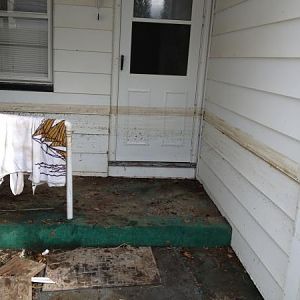

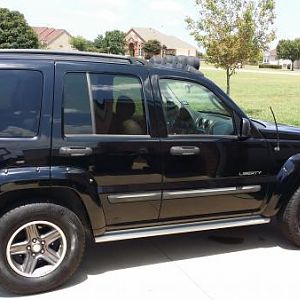
![IMG 20120721 154408[1]](/data/xfmg/thumbnail/5/5711-2e8f028dd1ef75f989f57f75c5aa32ef.jpg?1623784626)

